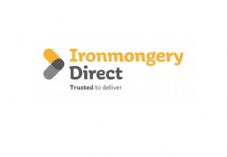UK DIY News
Tradespeople Offer Advice For Those Going Self-Employed

With unemployment hitting its highest level in three years, tradespeople from around the UK have given their top tips for those looking to go self-employed.
IronmongeryDirect has spoken to experts who have recently gone self-employed to give advice to those looking to make the step themselves.
Being your own boss has many perks that make it an appealing career move, but it also presents challenges you’ll need to prepare for.
1) Consider if you’re a sole trader or limited company
Choosing whether you will operate as a sole trader or as a limited company is an important step and will have implications for how you pay your taxes.
A sole trader is the simplest form of business structure and is essentially a self-employed person who is the sole owner of the business. A limited company has its own legal identity, separate from its owners and managers. This remains the case even if you’re the only person in the company.
Despite a limited company being a more complex structure, it offers an owner more protection. This is because as a sole trader, you have unlimited liability, meaning the law does not distinguish between your business and your personal property. This means that if your business incurs losses then your property could be seized by creditors.
Michael Wynn, Managing Director of Yorkshire Brickwork Contractors, said: “Setting up as a sole trader is seen as more manageable for busy tradespeople. This tends to be the preferred choice as less administration is involved when managing taxes, in addition to lower costs compared to a limited company.”
2) Put together a business plan
One of your first priorities should be to create a detailed business plan.
Christopher Field, who set up CJF Electrical Services, said: “By creating a business plan detailing all of your initial overhead costs, you ensure that you can save and budget for all the things you need to get started. This will include things like a van, tools, uniform, insurance, qualifications, and budget for marketing and advertising your services.
“Make a list of everything you need to buy and do, as well as estimating how long it will take to get everything sorted. It takes time to apply for a bank account, get the appropriate and best deal for insurance, set up wholesale accounts and create a website and social media channels, so don’t expect it to be quick to set up!
3) Make sure you have the right insurance
Business insurance is essential in any sector but is especially important in trades where health and safety is a factor in day-to-day work.
Alan Gott, from Alan’s Home Improvement Services, said: “It’s very important that you have public liability insurance (PLI) and professional indemnity insurance (PII). PLI covers you for injury and property damage claims made against you, whilst PII covers things like negligence claims and unintentional breaches of copyright or loss of data.
4) Don’t forget your taxes
Another part of getting your finances in order is knowing what taxes you’ll need to pay.
Michael Wynn adds: “Remember to make sure you keep up-to-date records of all business sales and expenses and plan to submit a self-assessment tax return every year - this is critical so do not forget! If you don’t keep up to date, it‘s really easy to fall behind and find yourself in a rather sticky situation.
“Another thing to note is that if your turnover is more than £85k, you must register for VAT. You can also register voluntarily if you sell to other VAT-registered businesses and want to reclaim the VAT at the end of the year.”
5) Focus on customer service
While good customer service is always important, it is particularly crucial when first starting out as it can be the difference between your business succeeding or failing.
Alan Gott added: “Remember that customer service is key. Create a personalised and quirky answerphone message so that people can leave a message, and always respond to messages promptly, regardless of whether or not you’re able to do the job. Arrive on time, and always be polite, courteous and obliging with your customers. This will help you to build up trust and spread positive word of mouth.
“Remember that even the little jobs can lead to more work in the future, so never turn down opportunities because you think they’re not big enough for you to spend time on.”
6) Market your services
Marketing your services can be done cheaply and effectively online, using Facebook or Google My Business. This will help people find you and increase awareness of your business.
Andy Porter said: "Look into local advertising methods to market your services and see how other tradespeople are doing it for inspiration. Alternatively, social media sites like Facebook can also be a great way to market your services for free if you don’t have the budget for advertising.”
7) Keep a cash reserve handy
Businesses need to be prepared to deal with the unexpected and keeping a cash reserve could help your company get through difficult times.
Andy Porter, a self-employed carpenter, said: “It’s important to make sure you’ve got plenty of money saved up in advance, as cash flow is really important. Having a contingency pot of emergency funds will help make your business resilient during quiet periods, as well as allowing you to deal with unforeseen occurrences beyond your control.”
8) Don’t be afraid to ask for help
Remember that you don’t have to go it alone when you’re first setting out. Industry organisations, friends and family on similar ventures are great resources of knowledge.
Andy Porter added: “It’s a good idea to speak with other sole traders that have established their own businesses and done it all before. Ask them for advice to help you repeat your successes and avoid their mistakes. This can also be a good way to build relationships with professionals in other trades, which can sometimes lead to additional work that you otherwise wouldn’t have been offered.”
IronmongeryDirect sells a range of tools and products you might need to start up your own trades business – for more information, visit: https://www.ironmongerydirect.co.uk/
Insight provides a host of information I need on many of our company’s largest customers. I use this information regularly with my team, both at a local level as well as with our other international operations. It’s extremely useful when sharing market intelligence information with our corporate office.











































